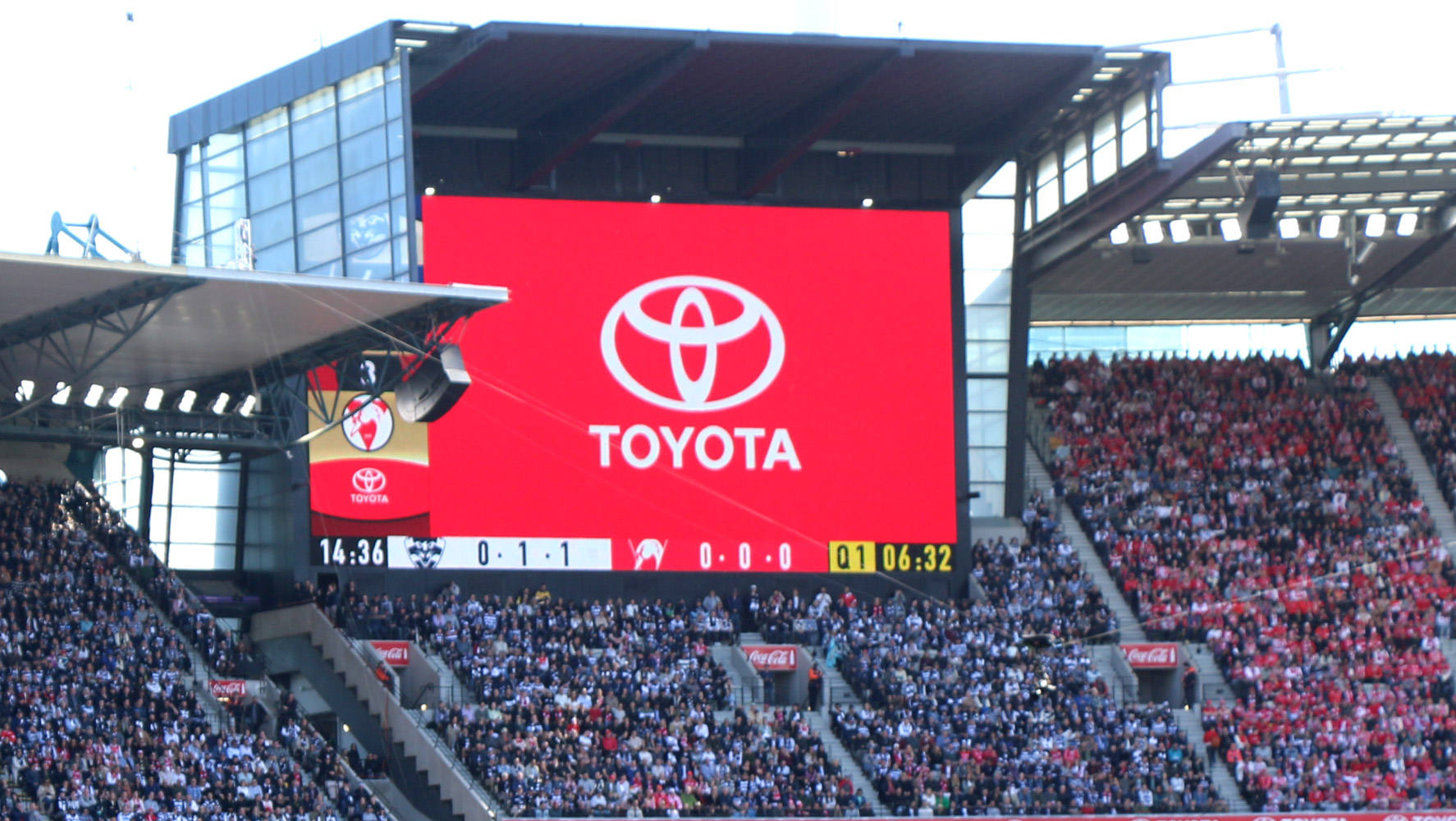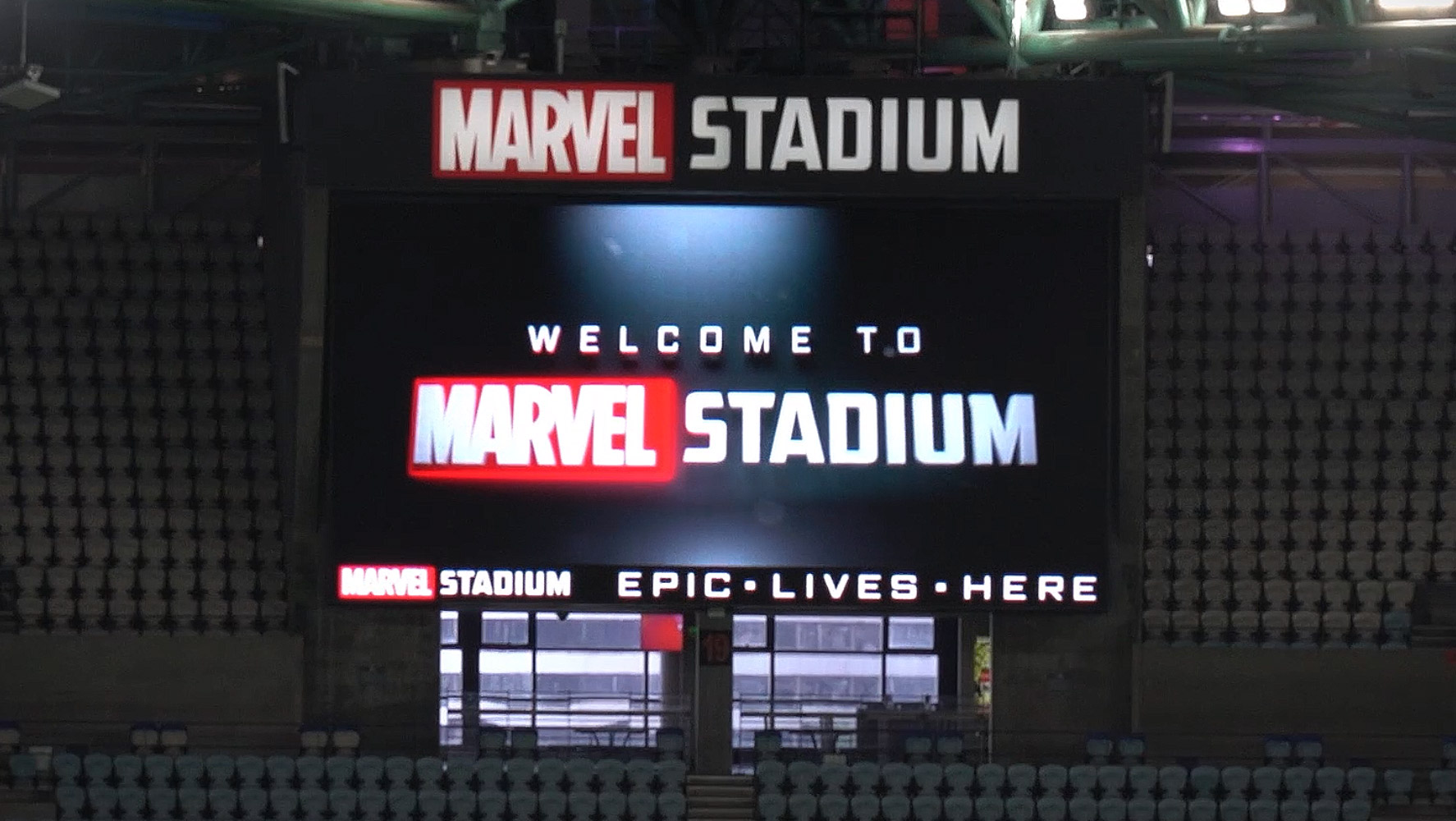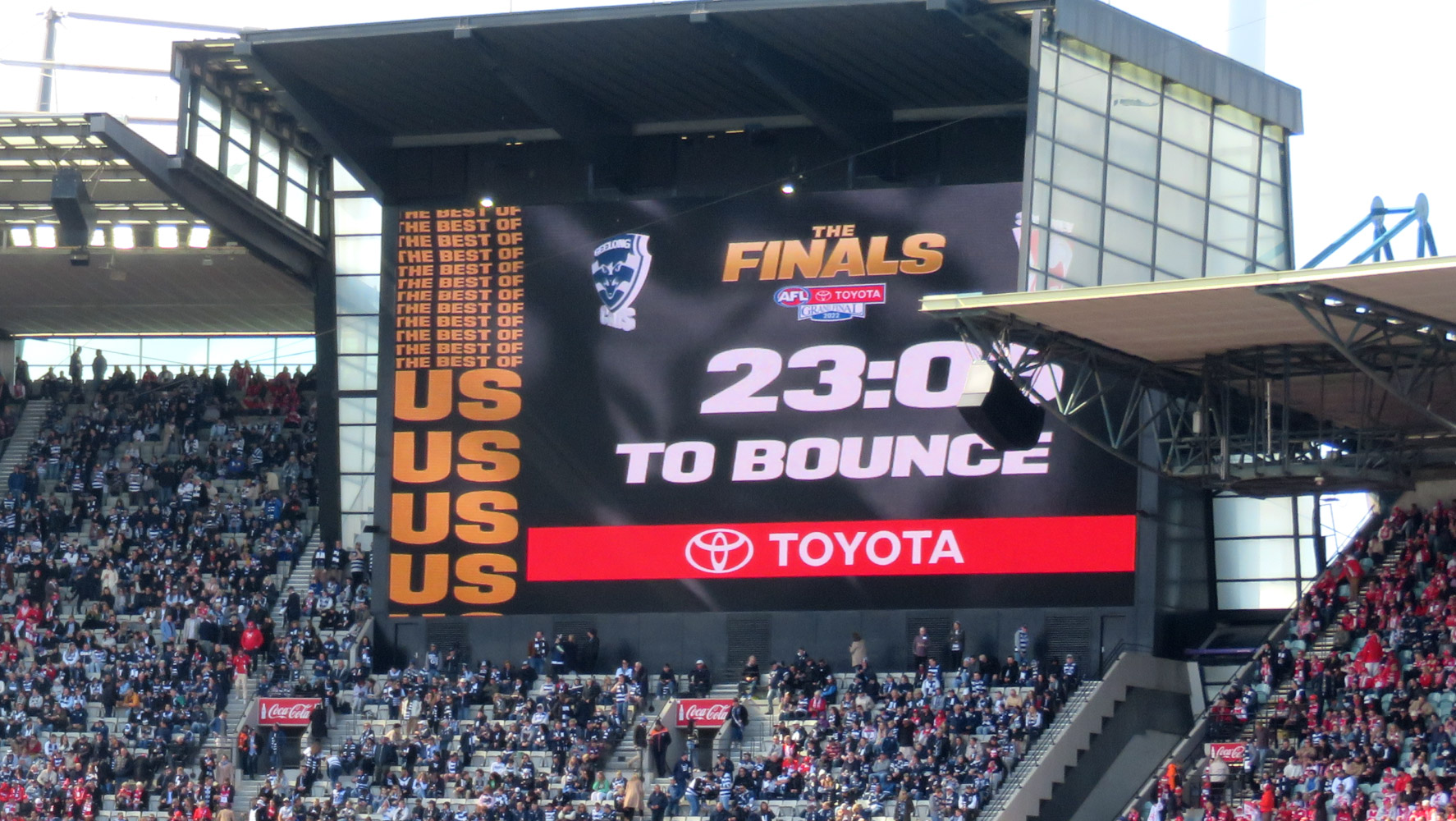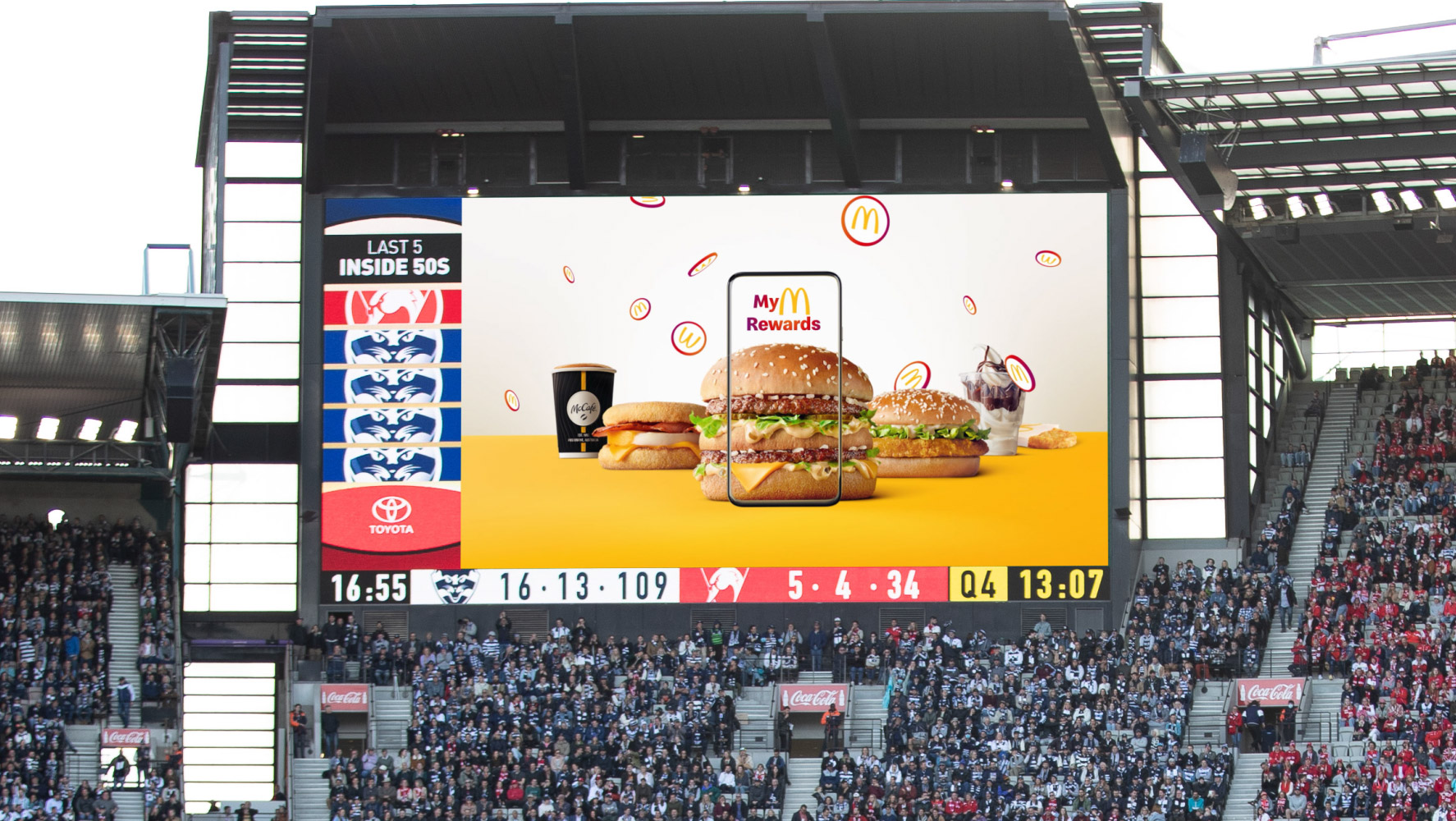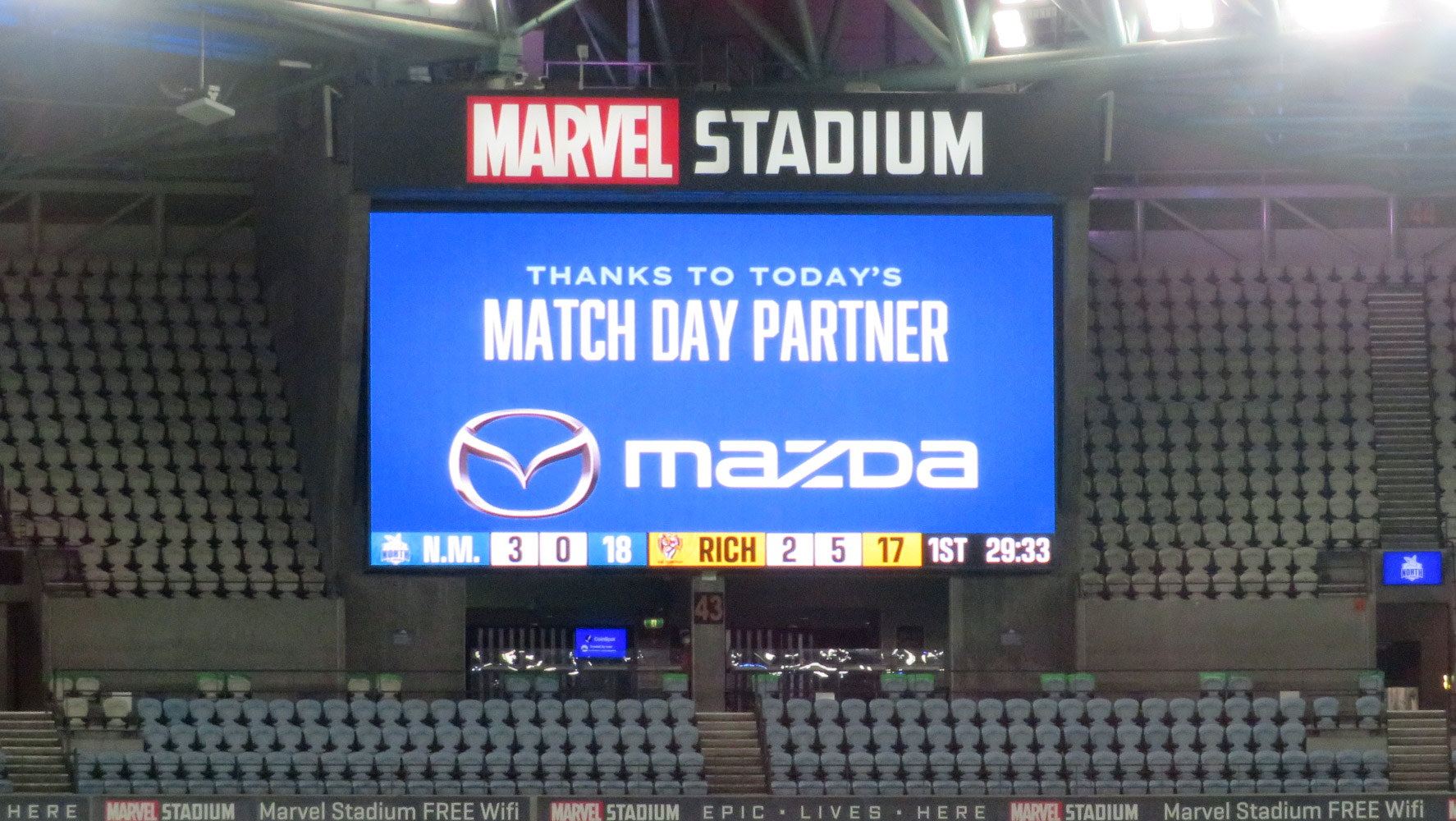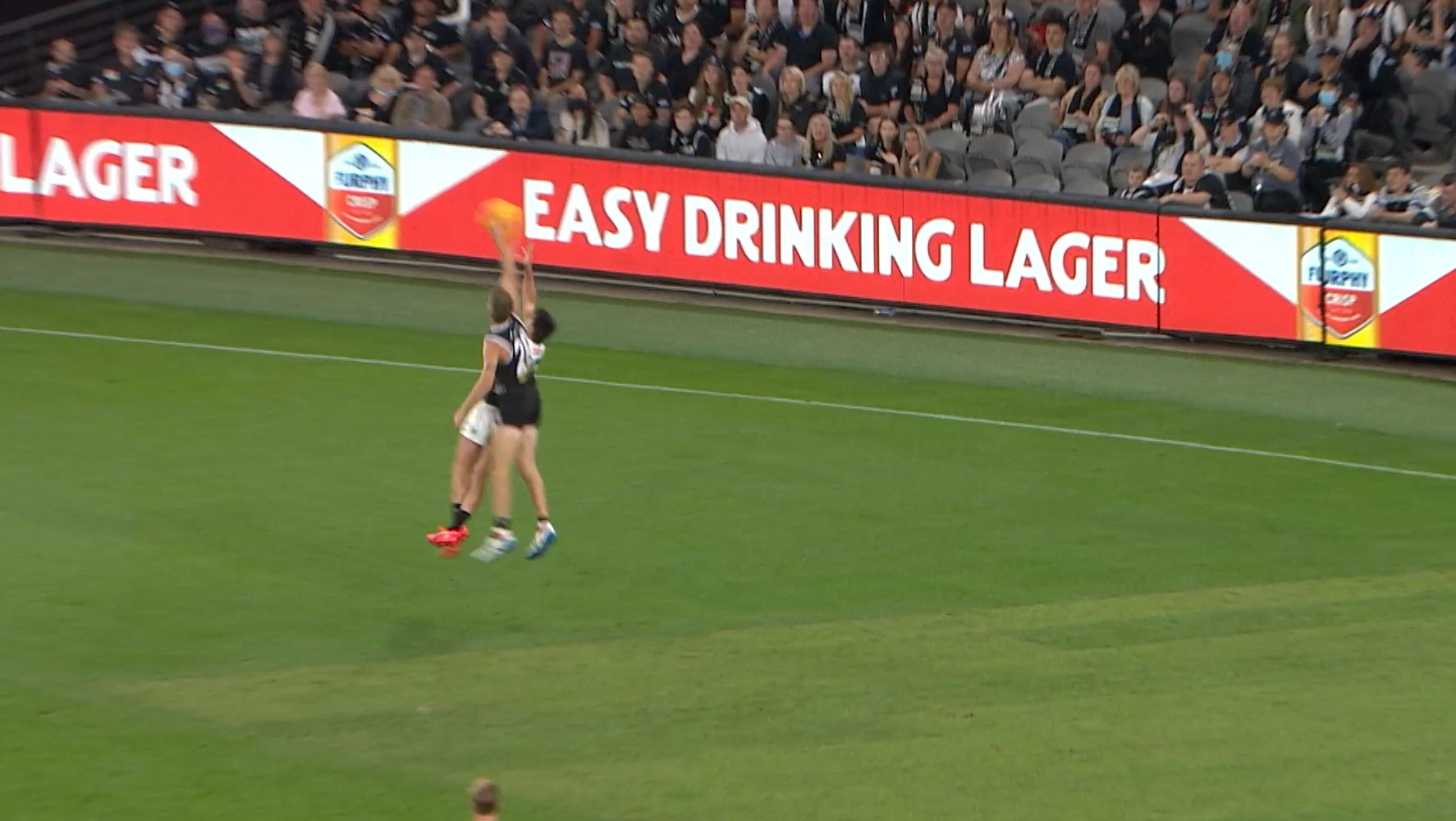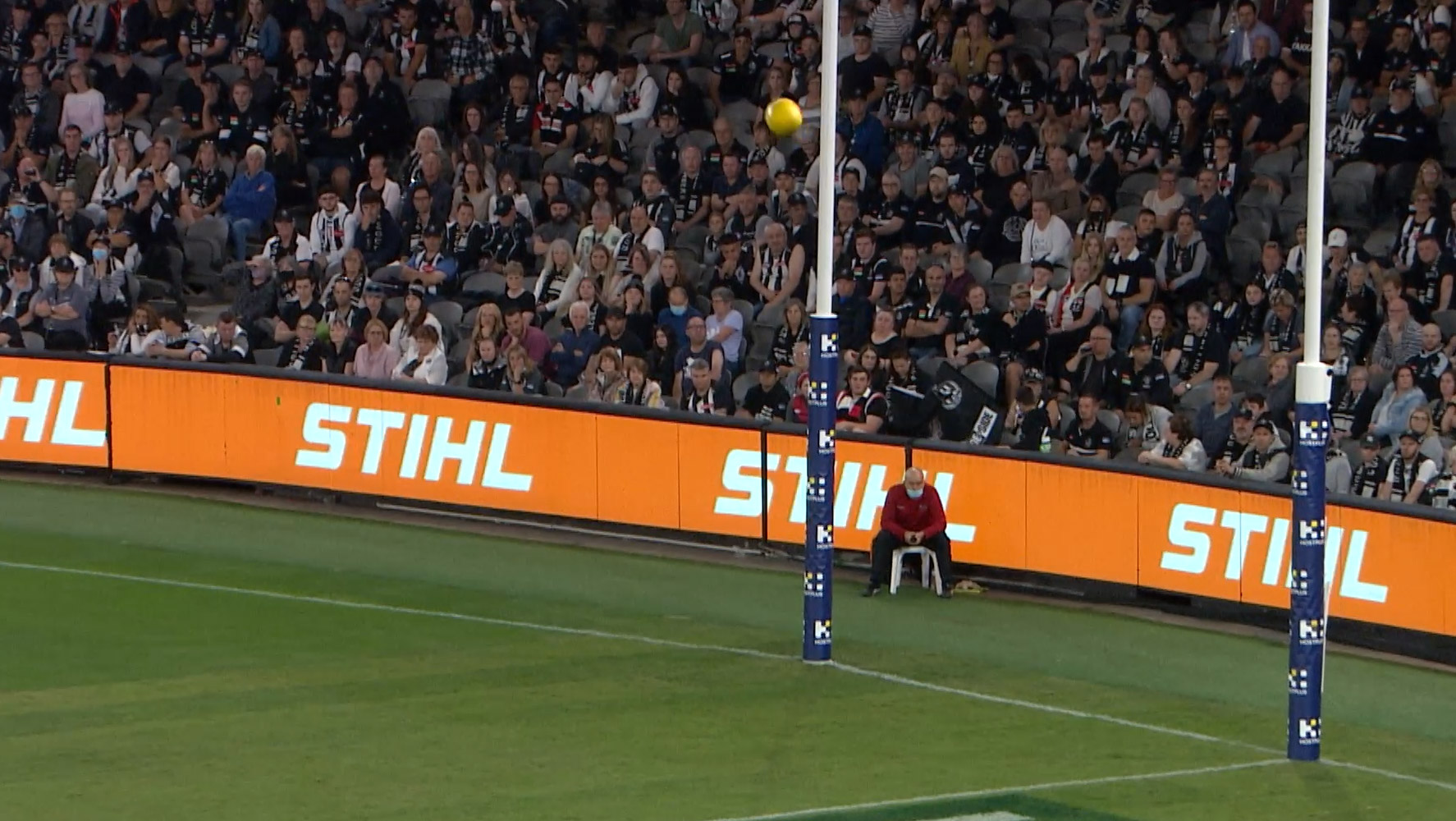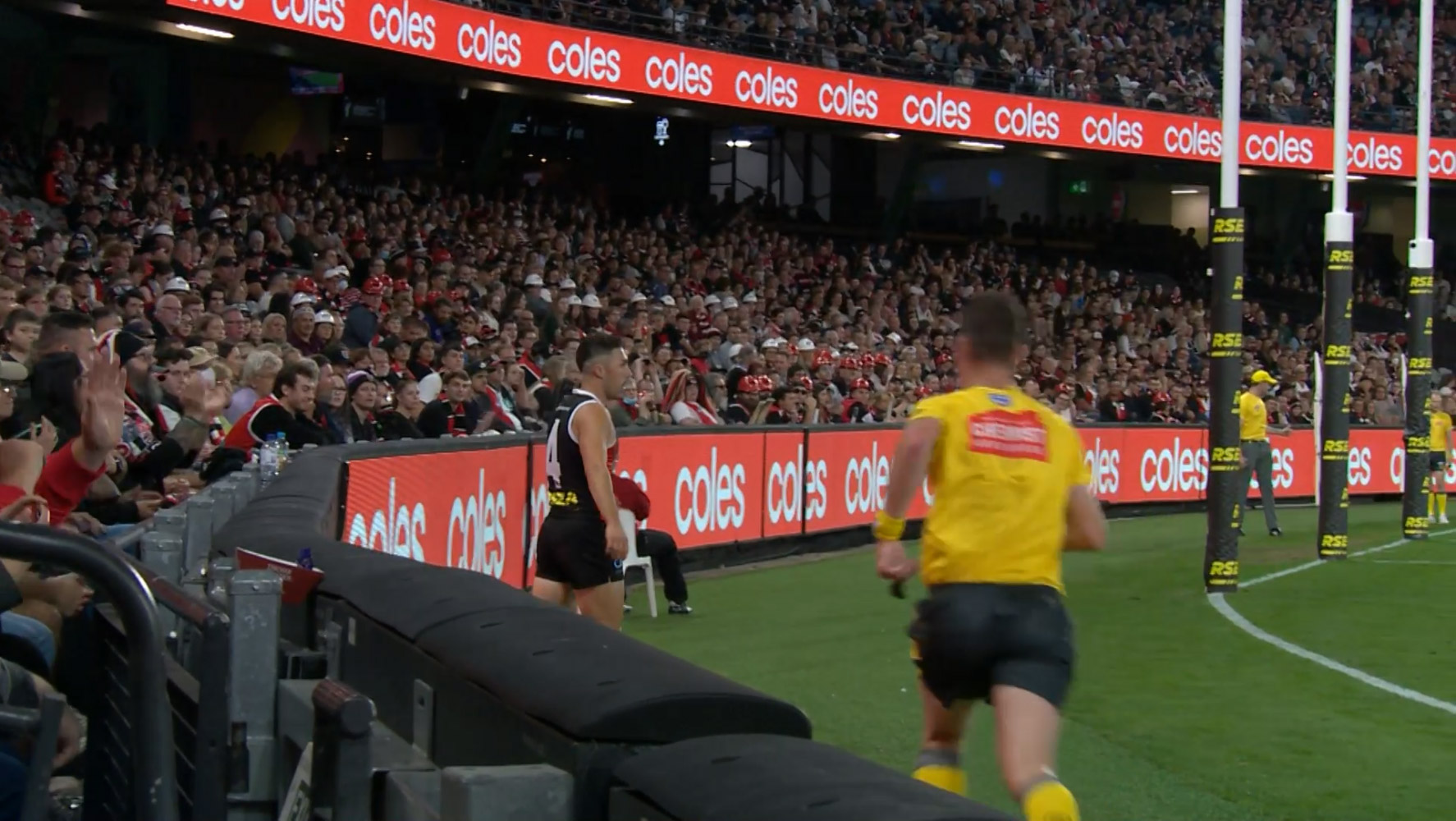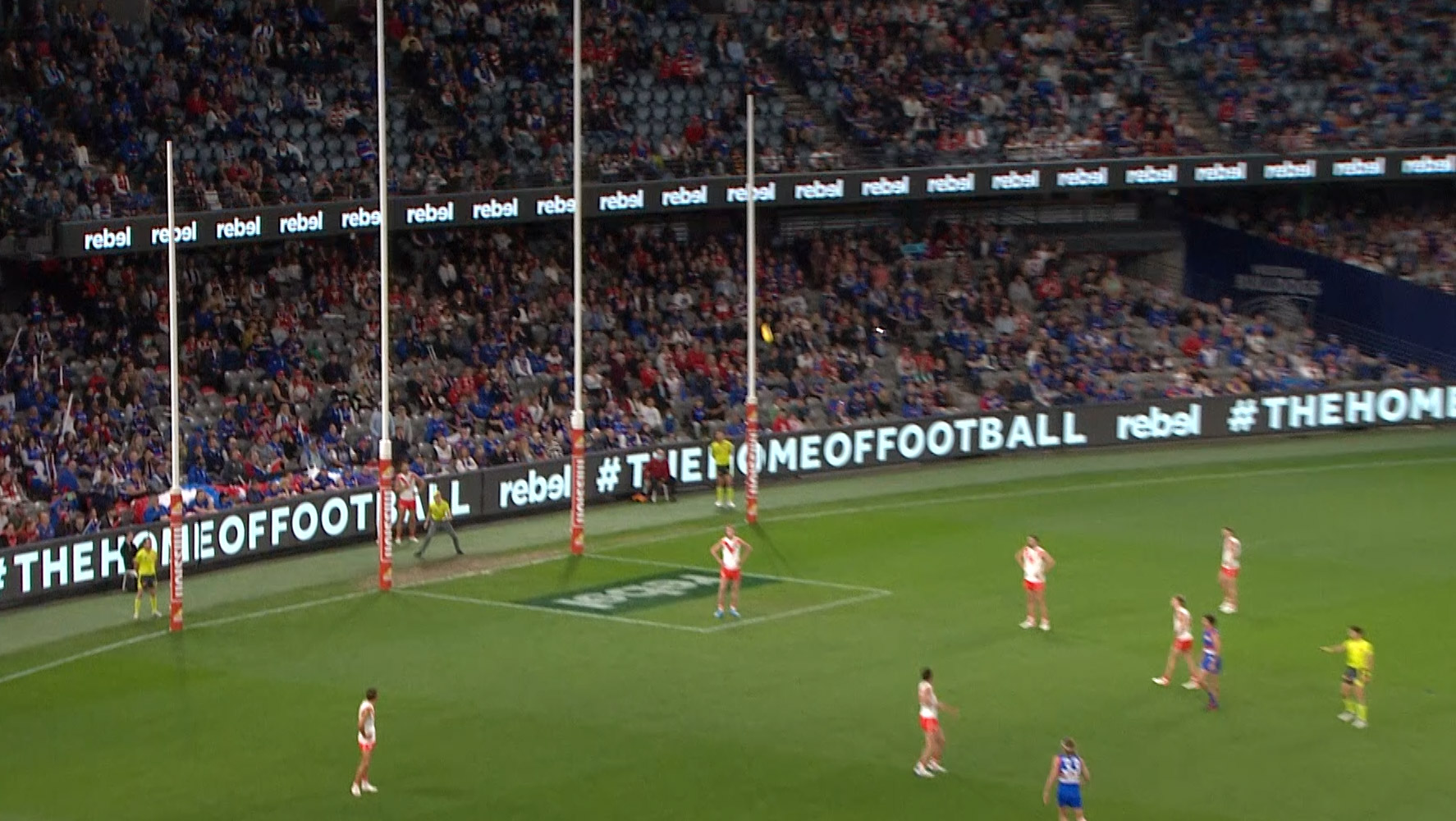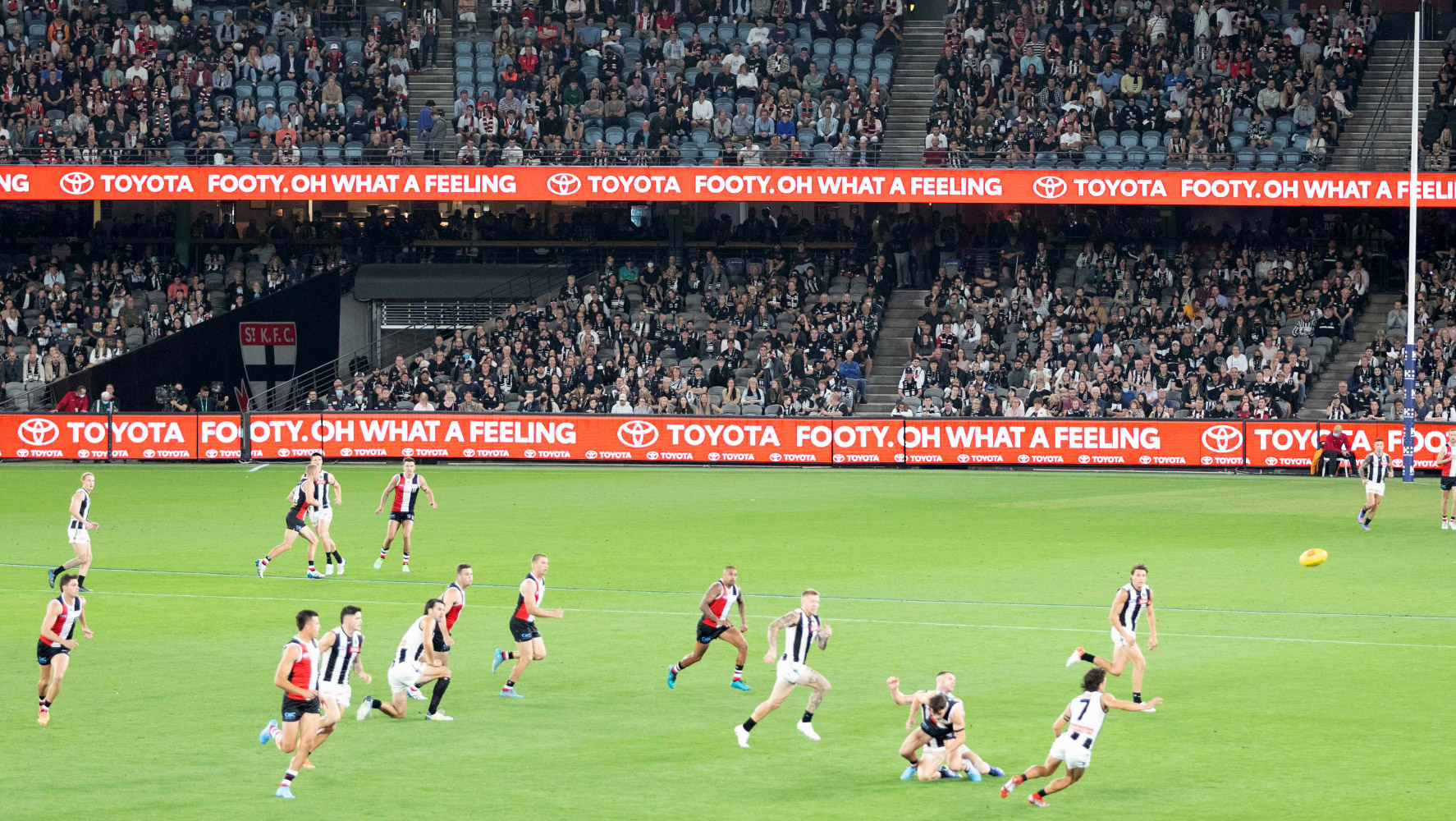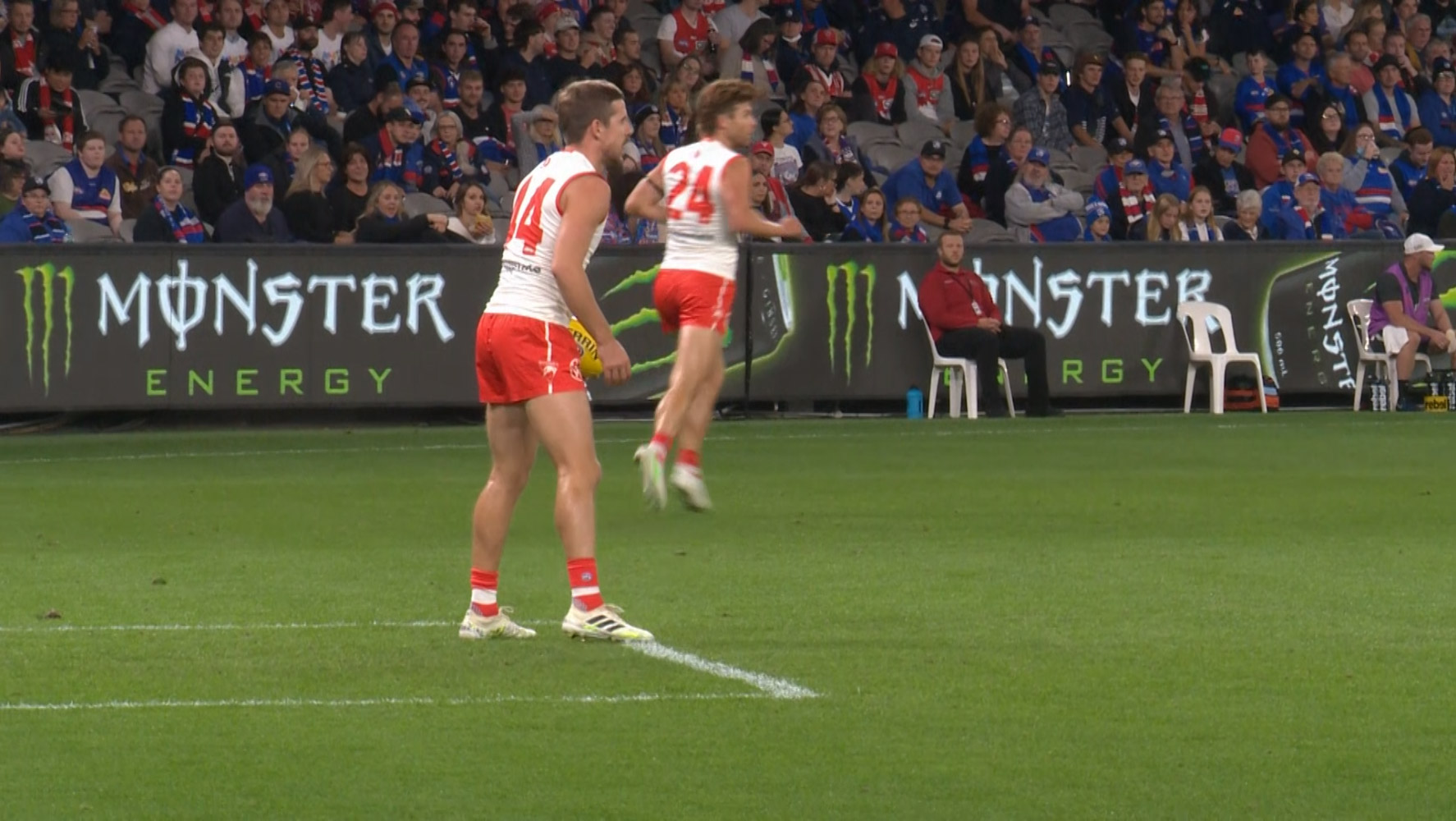Introduction
Make sure you read through all our tips and best practice guidelines to make the most effective content for display is stadium.
If you require assistance understanding these tips, want an expert opinion on your content or need help creating content, MKTG Creative is here to help.
Best Practice Video
Content guidelines
What works best
- High contrast graphics
- Bold logos and type
- Dark backgrounds with light text / logos
- Short messages
-
Have the main message on screen for
majority of the time
What to avoid
- Flashing or overly distracting graphics
- Very fast movement
- Small or thin text
- Limit unbranded time and space
LED content guidelines
Legibility
Content should fill up as much of the LED height as possible.
There are no safe areas on the LED, all pixels will be seen.

- Utilise the full height of the LED

- Don’t leave excessive space above/below content
Text and graphics should be large and bold to maximise legibility from a distance.
Shorter messages perform better than longer creatives with a lot of copy.

- Thick and large text is the most legible

- Thin or cursive text can be hard to read
Maximise contrast between the background and foreground elements.

- Maximum contrast

- Not enough contrast
Dark or bold colour backgrounds perform best on broadcast.
White and lighter colours should be avoided as the white can overpower the content.


- Dark and bold colourful background

- White or light background
Animated content can be a great way to draw the eye and display multiple messages over the duration of the content.
However animations must not be too distracting, scroll too fast, feature too many messages or flashing graphics.
Consider having your branding/main message on screen for the majority of the duration.
You can use photos, product images and video on the LED, however using these elements exclusively isn’t very effective in this space.

- Smooth and simple animation

- Animation too fast
Layout
Making sure your elements are evenly spaced ensures that you don’t leave large empty spaces on the LED.
Take into consideration your content will be back to back with another file.

- Even spacing between elements

- Uneven spacing between elements
Make sure to populate the entire LED and not leave large gaps.
You may miss out on exposure if too much space is left blank.
Do not put two lines of text on top of each other on the LED.

- Good coverage

- Poor coverage
Do not use your elements to cover up the seams between files. Content will end up cut in half.
This does not apply for scrolling / moving content.

- No stationary content on edges

- Stationary content on edges
You should keep all logos and assets the same size throughout your LED and across all files.
Field and parapet can have different sizes to each other.

- Same sized elements

- Differently sizes elements
Consider your designs not only on their own but in relation to each other.
If you have a tile that starts and ends with a logo such as below:

When it is tiled, you will end up with two logos next to each other before the text repeats.
There is nothing wrong with this, but it is something to keep in mind.

Some designs include a set of small logos along the bottom of the field LED.
This option can be useful if there is a close up near the LED.

Tiled LED
When using the tile spec, it is important that you design content that doesn’t create visible seams between the tiles.
To check the seams between your tiles, put the tiles you have created together end to end, to test if they blend seamlessly throughout the animation.
Animated elements that move off the side of the tile need to ‘re-appear’ on the opposite side of all tiles.

- Seamless animation

- Not seamless animation
Coloured/Textured backgrounds should blend from end to end.

- Seamless background

- Not seamless background
When tiled and 360 specs are available, you will need to choose which spec type to create, as both have their own advantages.
The tile spec offers the ability to make the content in less files and with more manageable dimensions. However to account for the different sizes of parapet displays, the tile is relatively narrow and doesn’t allow for longer messages.
The 360 spec allows for more flexibility when creating content and the ability to use the whole stadium as a unique canvas. However as there are more files involved that are larger and often connect from one to the next, it can be more involved to set up.
When tiled and 360 specs are available, it is recommended you make your content entirely with the tile OR 360 spec.
However it is possible to deliver a combination of these two specs.
In Drop search the Asset Specification drop down for ‘Combo’.
Combo 1 is for tiled field and 360 parapet.
Combo 2 is for 360 field and tiled parapet.
File creation
Due to the way the LED are played out, it is important that all files are the same duration.
Where a spec requires a certain duration, the files must all be exactly that duration, and not a frame more or less.
For example if you are required to make content that is 15 seconds long, you can check the duration in After Effects in the composition settings. The duration should read ‘0.00.15.00’
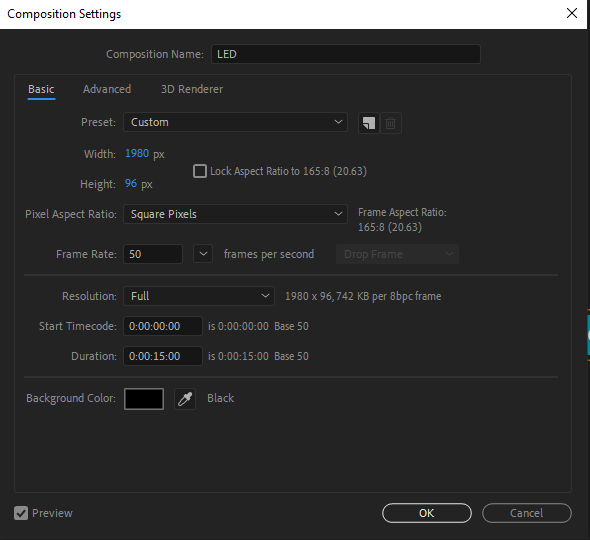
- After Effects composition settings
Sometimes when creating files in Adobe Media Encoder or Handbreak, the large dimensions of the LED files can be restricted by the default settings. Make sure to double check the output dimensions.
You may need to change the following Media Encoder settings to the following:
Profile: Main
Level: Unrestricted
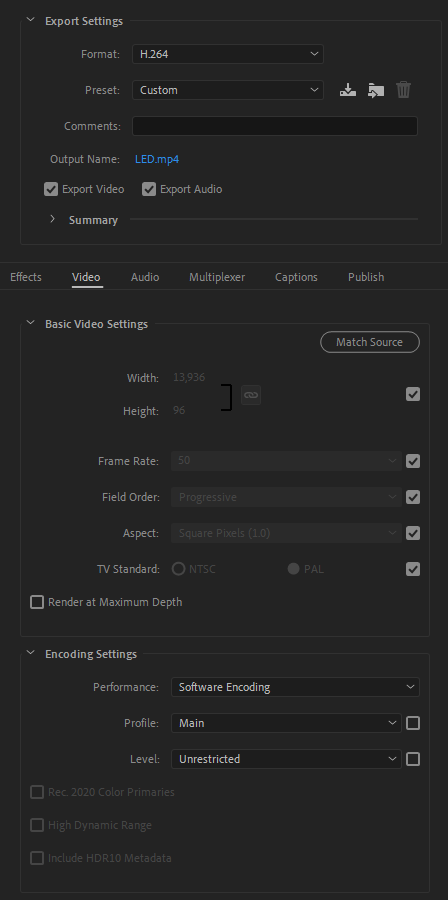
- Adobe Media Encoder settings

